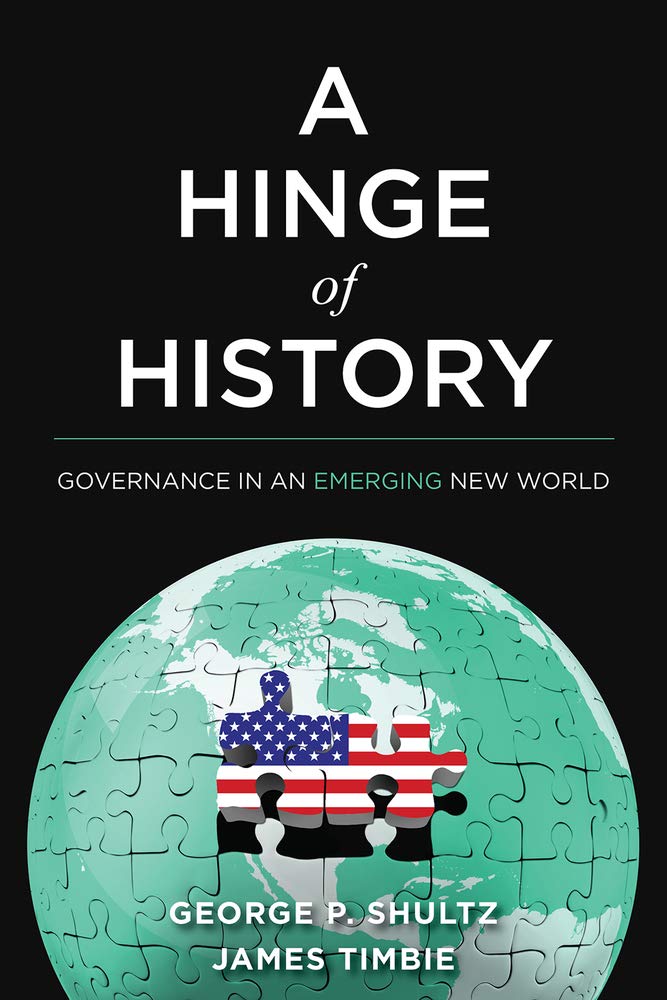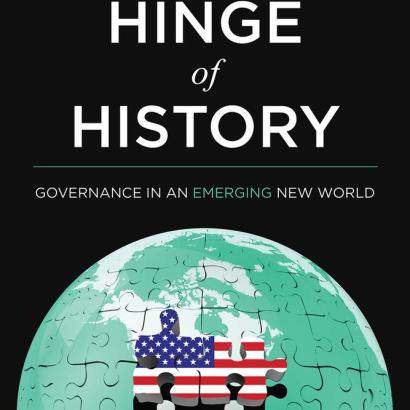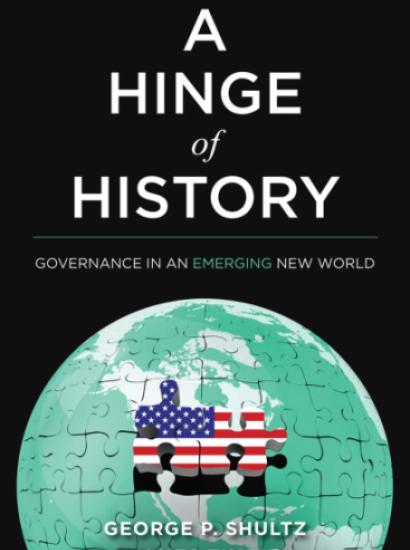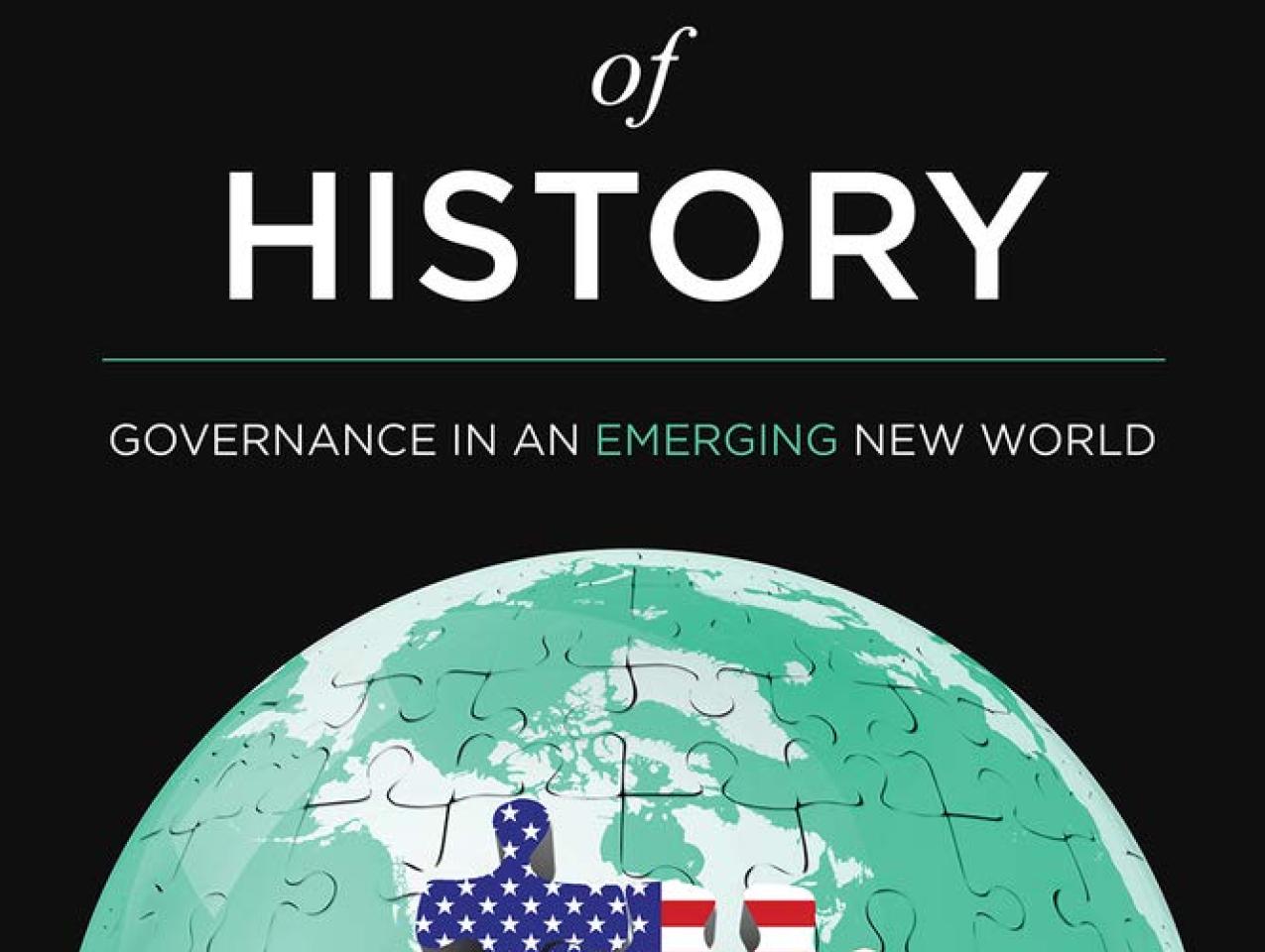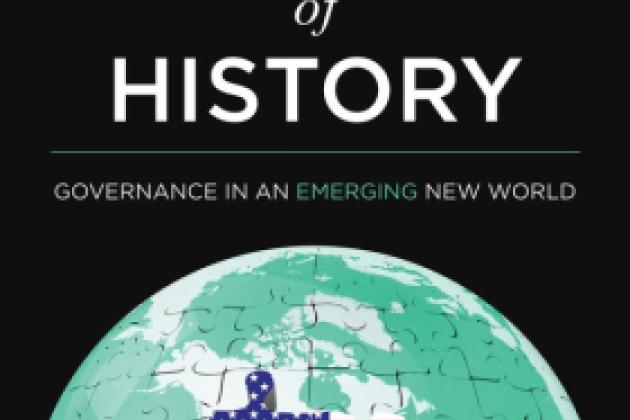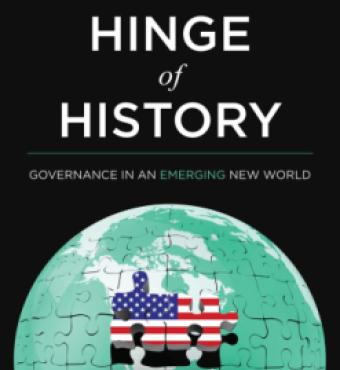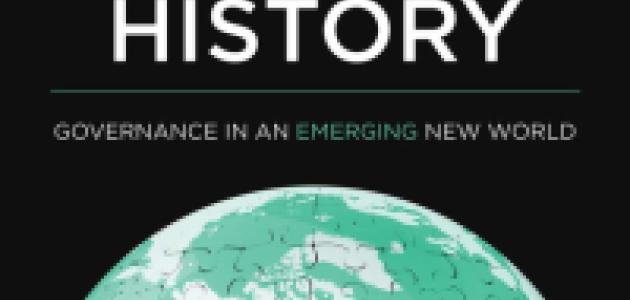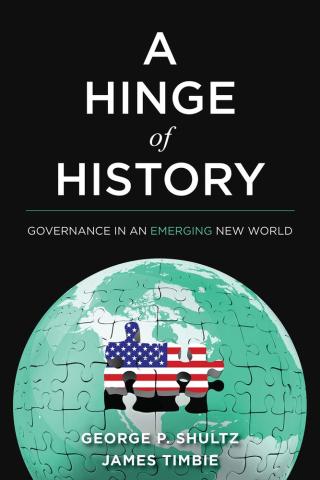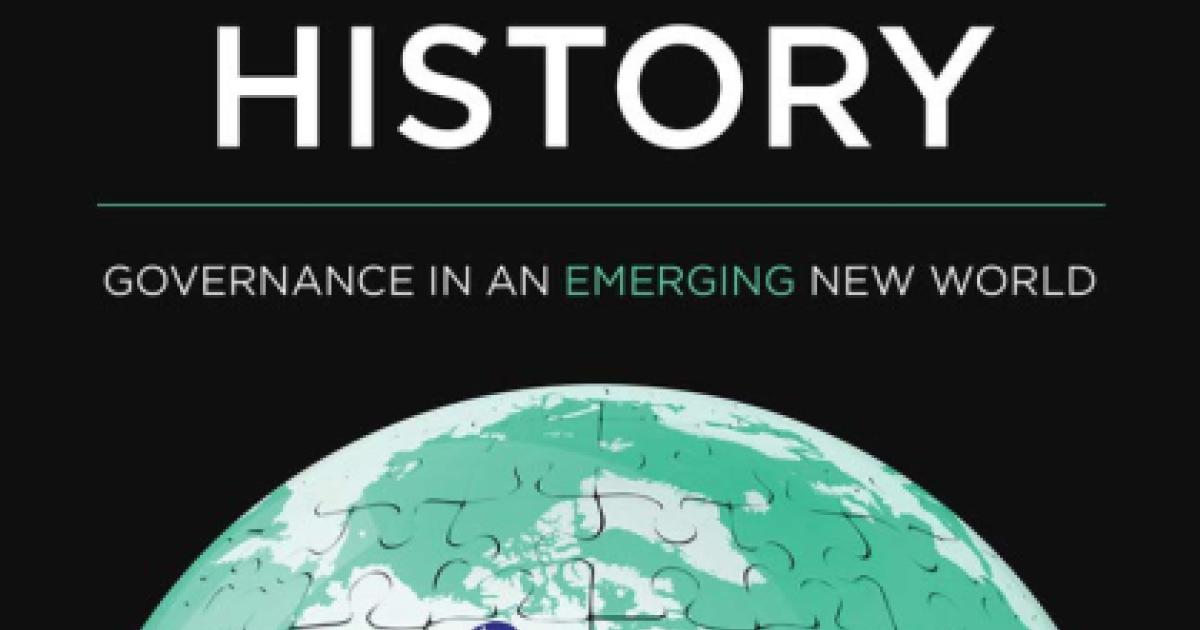The Hoover Institution and the U.S. Institute of Peace hosted Hinge of History: George P. Shultz on Governance in an Emerging New World on December 2, 2020 from 11:00-12:30 PM PST.
With rapid technological change, shifting global demographics, and tectonic geopolitical shifts, the world faces an inflection point; a “hinge of history,” where the choices that leaders make in the coming years will have profound implications for generations. What awaits us on the other side of this hinge of history? What are the implications of these trends for American leadership in the 21st century? How should we develop strategies to deal with this emerging new world?
Former Secretary of State George P. Shultz has for the past three years organized a project at Stanford University’s Hoover Institution to explore the challenges and opportunities for global democracy, economies, and security posed by emerging technologies and societal changes. This project, Hinge of History: Governance in an Emerging World, distills the highlights of more than 60 original essays written by experts and practitioners from around the world, and over 30 roundtables and public panels. The project details how rapid societal and technological changes are complicating governance around the globe. Demographic changes and migration are having a profound effect as some populations age and shrink while other countries expand rapidly. The information and communications revolution is re-shaping age-old challenges of governing pluralistic societies. Emerging technologies, especially artificial intelligence and automation, are bringing about a new industrial revolution, disrupting workforces and increasing military capabilities of both states and non-state actors. And new means of production such as additive manufacturing and automation are changing how, where, and what we produce. These changes are coming quickly, faster than governments have historically been able to respond. The Hinge of History project underscores that meeting the transformational challenges of this “hinge of history” will require international cooperation and constructive international engagement—as well as an “America can help the world through this new hinge of history through leadership.”
Hosted by the U.S. Institute of Peace in partnership with the Hoover Institution at Stanford University, this event will discuss the findings of the Hinge of History project and consider the implications for U.S. and international policy.
WATCH THE DISCUSSION
| TIME | Content | panelists |
|---|---|---|
|
2:00pm – 2:20pm PDT |
A Conversation with Secretary George P. Shultz |
The Honorable Stephen J. Hadley Secretary George P. Shultz |
|
2:20pm – 3:20pm PDT |
Panel Discussion: Governance Strategies for the Emerging New World |
Dr. Chester A. Crocker, moderator Dr. Lucy Shapiro Ambassador George Moose Dr. James P. Timbie Dr. Silvia Giorguli-Saucedo |
|
3:20pm – 3:30pm PDT |
Closing Remarks |
Ambassador George Moose |






